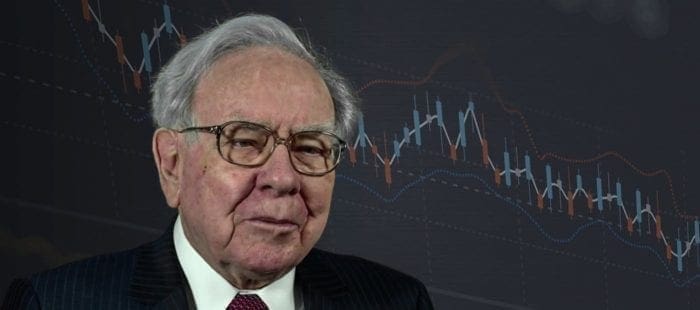Warren Buffett was born and raised in 1930 in Omaha, Nebraska. He is the son of a congressman named Howard Buffett. He was interested in business from an early age. Some anecdotes about him are very amusing, and predict his future success. As a youth, he spent a lot of time doing newspaper delivery. This is common for many children, but what is not common is that Buffett’s first tax submission contains a deduction for his watch and bike used in the delivery.
You might also enjoy:
- What is MACD? – Understanding How To Use, Read, And Calculate It
- What is Day Trading and How Does It Work?
Warren Buffett’s Early Years
His stock career started early, with Warren buying his first stock at the age of 11. This was a purchase of shares of Cities Service (Preferred) stock, three shares for himself and his sister each. Cities Service Co is a petroleum company that most people will recognize as CITGO, since they have used that name from 1965 onward.
This early entrepreneurial spirit continued through his adolescence. He would sell simple goods door to door, while also working at his grandfather’s grocery store. He used some of this money to buy a pinball machine. As this plan started making money, he purchased more pinball machines and finally sold the whole business for a huge profit. Using a chunk of the savings he had at that point, he then ended up putting money into his father’s business. Even more shocking is at age 14 he purchased a farm, 40 acres of land and employed workers to cultivate it.
Late Teens
From the age of 17 he was in college at the University of Pennsylvania, in the Wharton School. This is an Ivy League business school that is often cited as the best business school in the world. Other famous graduates of the school include Elon Musk and Donald Trump. Buffett later transferred to University of Nebraska-Lincoln where he would graduate with a B.Sc. in Business Administration. He was 19 years old at this point, with everything he had done to this point going well for him. Next he would try to get accepted to Harvard Business School, but faced rejection. Instead he attended Columbia University and earned his M. Sc. in Economics. This was influenced by the fact that Benjamin Graham taught at that school. Buffett had read Graham’s book The Intelligent Investor in 1949, and it was like a bible to him.
At the end of college he had a large amount of savings that would equate to an impressive $100,000 in today’s dollars. Although he came from a wealthy upbringing, no one can question that he has made his own way and his own wealth in life. Buffett is currently the second wealthiest man in America, with a net worth of over $75 Billion.
Warren Buffett and Benjamin Graham
Warren Buffett once said that Benjamin Graham’s influence was second only to his father’s, Howard Buffett. Howard was an impressive person; an investor, businessman, and a Republican Representative in the House for 4 terms.
Though Warren did not mark Benjamin Graham as his biggest influence, it is still an amazing compliment. It stands out heavily because Warren has always been known for thinking for himself, and forging the way he sees best despite what others may think. When Buffett says someone has influenced him, it is a potent admission.
The book that changed Warren’s life and gave him such strong faith in Ben Graham was called The Intelligent Investor. It was published in 1949, when Warren was 19 years old. It instantly became gospel to him, and why Buffett sought him out as a teacher. The Intelligent Investor is a book on how to invest with a focus on value – a principle championed by Graham.
The three tips that Buffett held onto are as follows:
1. “A stock is the right to own a little piece of a business.”
This may seem obvious, but people get caught up in the stock’s value on the market. You cannot forget that the stock is only valuable if the company is, despite how the market prices it.
2. “Use a margin of safety.”
This simply means to buy stocks that the market is not assigning a high enough value, so that the gap in true value and market valuation gives you safety.
3. “Mr. Market is your servant, not your master.”
Graham made the market into a human character and taught his students that this character was their partner. He focussed on how this character is irrational and emotional. This is beneficial if you understand it, since making deals with an emotional and irrational person gives a much higher chance that you can find a better deal. This analogy also highlights the idea that you cannot view market valuation as a fact. It will often be heavily influenced by random human elements rather than logic.
In the future we will have a further article about Buffett’s life story and the strategies and philosophies he has aligned himself with.

